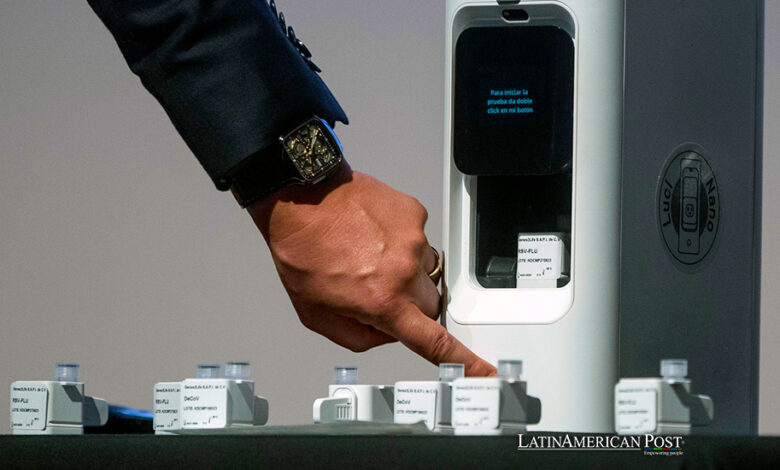Mexican Scientists Launch AI App for Real-Time Epidemic Surveillance

In a groundbreaking development, a Mexican scientist team unveiled an artificial intelligence application named ‘Pablo,’ designed to conduct real-time epidemiological surveillance. This innovative tool, presented on Monday, promises to enhance the development of virus diagnostic systems, streamline the manufacturing of tests, and optimize the number required during outbreaks.
Revolutionizing Diagnostics: Meet ‘Pablo’ by Itrasig
Developed by the Translational Institute of Genomic Singularity (Itrasig), ‘Pablo’ leverages epidemiological data and online information to deliver rapid diagnostics in seconds. Octavio García, the institute’s president and founder, praised its intuitive and intelligent design.
“Pablo can analyze real-time information, not just from epidemiological databases, but also detect anomalies and behavioral patterns by monitoring online data,” García explained during the application’s presentation.
‘ Pablo’ ‘s primary goal is to identify a disease’s epidemiological landscape and detect potential virus mutations. García emphasized that this application could lead to more efficient resource utilization, especially during an epidemiological outbreak in a specific region. By calculating the number of tests needed for effective surveillance, ‘Pablo’ could prevent unnecessary expenditures on extra supplies, thus ensuring cost savings and more efficient spending.
Bridging Innovation: Itrasig’s Impact on Public Health
García’s ambition is to integrate this tool into the public sector, where it can have a widespread impact. This AI application, entirely developed by Mexican scientists, adds to the portfolio of innovations presented by the nonprofit organization, including NanoLuci, a mini-laboratory introduced last year. NanoLuci can process up to 200 genetic analyses to detect human, animal, and plant diseases.
NanoLuci’s versatility is noteworthy, with the ability to identify diseases like influenza, COVID-19, Human Papillomavirus (HPV), and Human Immunodeficiency Virus (HIV) using just a saliva sample in a small tube within a cartridge. Remarkably compact, it weighs only 3.5 kilograms and is about the size of a modern coffee maker.
Democratizing Healthcare: NanoLuci’s Accessible Approach
Beyond commercialization, García intends to make NanoLuci accessible in community centers, remote locations, health campaigns, and more. On the same day as ‘Pablo’s’ presentation, Itrasig signed a collaboration agreement with Coyote Bioscience, an Asian molecular diagnostics company, to manufacture this device starting this year.
“We are exploring the most favorable conditions for ‘nearshoring’ (relocating value chains) because, even though it’s a co-development, manufacturing is currently done in China,” García mentioned.
The Path to Accessibility: Pricing and Rollout
While the official pricing is yet to be determined, García estimates that a NanoLuci unit might cost about as much as an iPhone, with individual tests priced between 200 and 300 pesos (approximately 11.85 to 17.77 USD). The commercial rollout in Mexico is slated for February.
Also read: Health Authorities Confirm that the ‘JN.1’ Variant of COVID-19 is Circulating in Colombia
‘Pablo’ and NanoLuci represent significant strides in healthcare technology, showcasing the innovative spirit of Mexican scientists. These tools can potentially transform how we approach epidemiological surveillance and disease diagnostics, offering faster, more efficient, and accessible solutions.
As these technologies make their way into the market and public health systems, they promise to significantly improve disease management and outbreak response, not just in Mexico but potentially worldwide.
